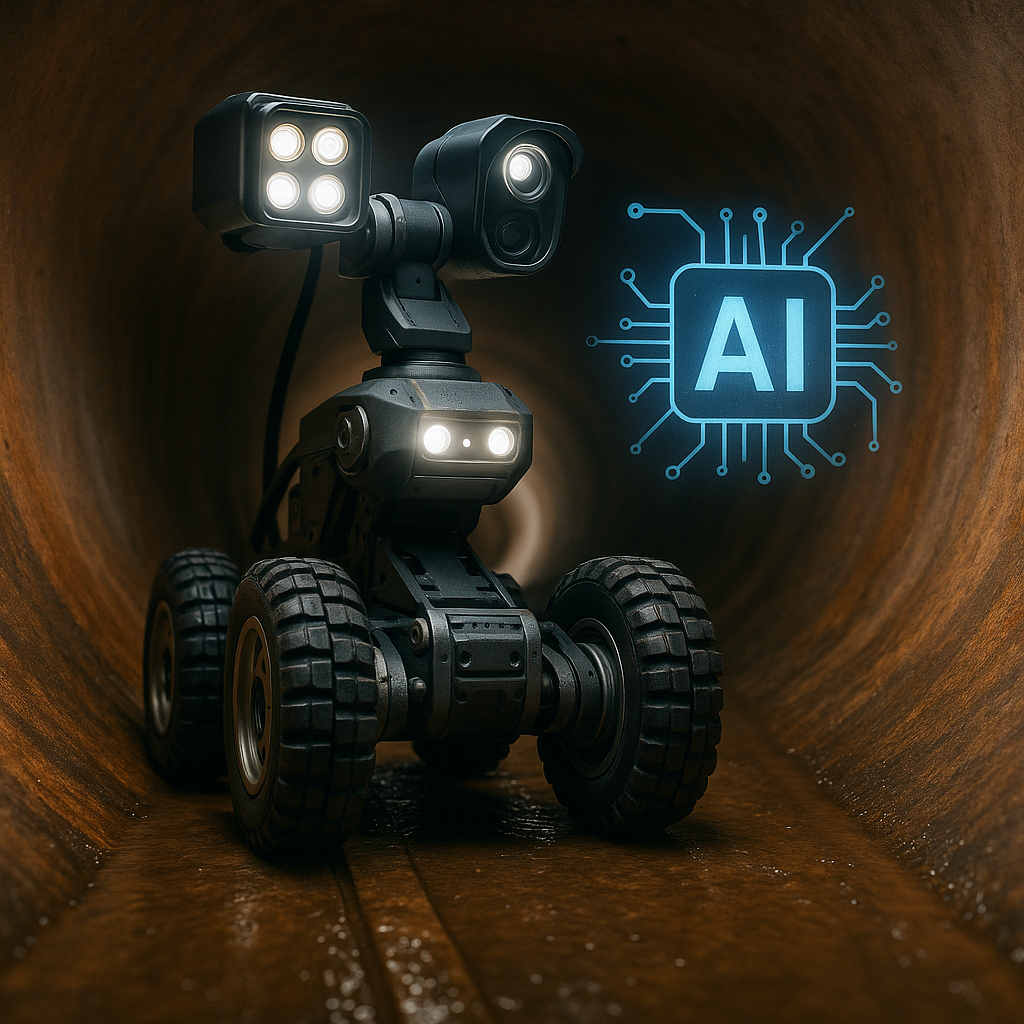Top Trends in Sewer Inspection Technology for 2024
Discover the latest sewer inspection technology trends, including robotics, AI, and smart data analytics for enhanced accuracy and efficiency.

Top Trends in Sewer Inspection Technology for 2024
Introduction
As the sewer inspection industry evolves, 2024 brings groundbreaking advancements that are reshaping traditional methods. Leveraging robotics, artificial intelligence, and smart data analytics, these innovations not only enhance accuracy and safety but also offer significant cost savings and efficiency improvements.
Robotics and Autonomous Systems
Crawler Robots
Crawler robots have revolutionized sewer inspections by providing access to challenging environments. Equipped with high-definition, pan-and-tilt cameras, these robots allow detailed visual inspections inside pipes, reducing the need for human entry into hazardous areas.
- Benefits: Minimize human exposure to dangerous environments, increase inspection accuracy.
- Key Features: HD cameras, mobility in confined spaces, real-time defect detection.
AI-Powered Algorithms
AI-powered algorithms automate the defect detection process in real-time, identifying cracks, root intrusions, and joint displacements with remarkable precision.
- Advantages: Faster inspections, reduced error rates, comprehensive data analysis.
- Applications: Predictive maintenance, real-time monitoring.
Wireless and Remote Inspection Technologies
Wireless Cameras and Sensors
Wireless cameras and sensors are crucial for transmitting live data from hard-to-reach or dangerous locations, significantly reducing inspection time and costs while enhancing worker safety.
- Benefits: Improved safety, cost efficiency, real-time data.
- Use Cases: Remote locations, confined spaces.
Drones and Robotic Arms
Drones and robotic arms offer flexible inspection solutions for both underground pipes and above-ground infrastructure, providing precise and comprehensive assessments.
- Advantages: Versatility, detailed inspections, reduced need for manual labor.
AI and Data Analytics
Artificial intelligence plays a vital role in enhancing predictive maintenance by analyzing inspection data to forecast potential failures.
- Benefits: Early detection of issues, reduced emergency interventions, automated reporting.
- Compliance: Supports adherence to environmental regulations such as EPA standards.
Smart Plumbing Integration
Residential sewer systems are increasingly incorporating smart sensors that monitor water usage, detect leaks, and enable remote control via apps.
- Advantages: Water conservation, early problem detection, user-friendly interfaces.
Safety Protocols
Advanced safety protocols, including portable gas detectors and real-time video feeds, significantly lower risks associated with confined space entry and toxic gases.
- Benefits: Enhanced worker safety, reduced physical hazards, compliance with safety standards.
Market Trends and Business Opportunities
Urbanization and Aging Infrastructure
The drive for urbanization and the need to maintain aging infrastructure are pushing the demand for advanced inspection solutions.
- Market Projection: Sewer maintenance market expected to exceed $9.2 billion.
- Opportunities: Adoption of AI-driven, automated, and eco-friendly solutions.
Cost and Pricing
While the initial investment in robotic and AI technologies can be substantial, these tools ultimately reduce labor costs and minimize excavation needs.
- Cost Savings: Reduced downtime, efficient resource allocation.
- Pricing Strategies: Competitive pricing by offsetting initial technology costs with long-term savings.
Recent Success Stories
Municipalities have successfully used robotic crawlers and AI analytics to detect early pipe defects, preventing major sewer failures and costly environmental contamination.
- Case Studies: Highlight integration of circular catch basins, improved infrastructure resilience.
Conclusion
In summary, sewer inspection technology in 2024 is characterized by smart, automated, and remote solutions that improve accuracy, safety, and environmental compliance. These innovations offer significant business growth potential in a market driven by urban growth and sustainability demands.
Practical Tips and Actionable Advice
- Invest in AI and Robotics: Prioritize technologies that offer long-term cost savings and efficiency improvements.
- Embrace Wireless Technologies: Utilize wireless cameras and sensors for safer, faster inspections.
- Focus on Predictive Maintenance: Implement AI analytics to minimize emergency repairs and enhance infrastructure resilience.
Table of Contents
- Introduction
- Robotics and Autonomous Systems
- Crawler Robots
- AI-Powered Algorithms
- Wireless and Remote Inspection Technologies
- Wireless Cameras and Sensors
- Drones and Robotic Arms
- AI and Data Analytics
- Smart Plumbing Integration
- Safety Protocols
- Market Trends and Business Opportunities
- Urbanization and Aging Infrastructure
- Cost and Pricing
- Recent Success Stories
- Conclusion
- Practical Tips and Actionable Advice